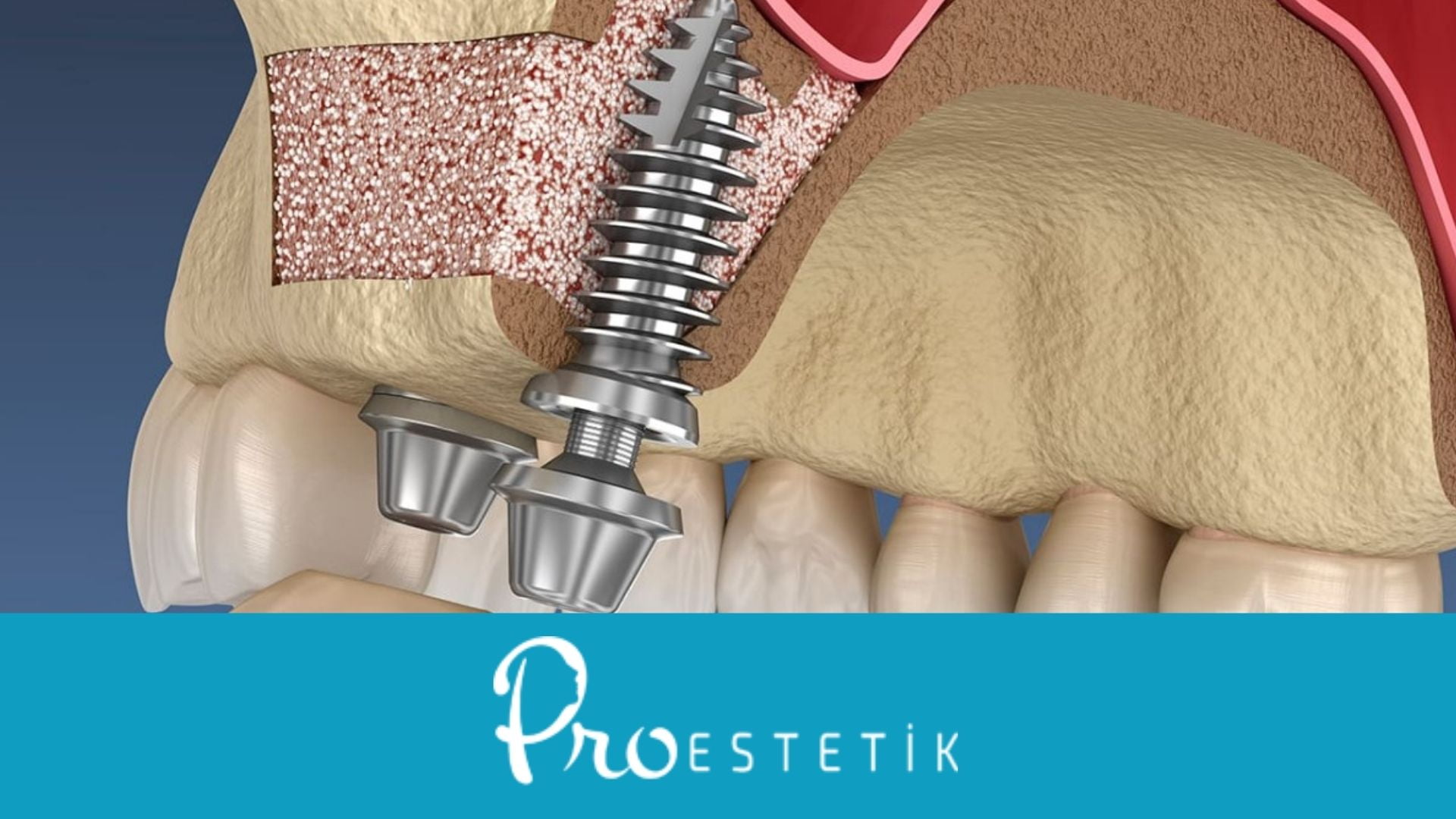An implant is a titanium screw used in the treatment of missing teeth inside the mouth. It is placed into the jawbone. The success rate of implant treatments carried out by an experienced dentist in a sterile environment is close to 98%. So, what happens if an implant fails? We've explained it for you!
Before addressing what happens if an implant fails, let's first explain the reasons for the failure of implant treatment.
Failure of implant treatment is rare. In some cases, implant failures can occur due to the patient or an inexperienced dentist. Some reasons for failed implant treatments include:
- Lack of careful post-surgical care by the patient. If the patient does not attend regular check-ups and does not maintain proper oral hygiene, the implant treatment may fail.
- The period of 3-6 months after the implant surgery is a crucial healing period. During this time, the patient needs to be cautious with their implants. Factors such as sticky and hard foods, poor oral hygiene, pain, and excessive biting force can lead to implant failure.
- Implant surgery is a significant procedure, and choosing the right clinic and dentist is crucial. An inexperienced doctor can be one of the reasons for implant failure.
- Smoking can contribute to implant loss as it restricts blood flow to the gums, slowing down the healing process.
- The success of implant placement depends on the strength of the jawbone. If the jawbone is not strong enough, the implant may fail.
Now, let's explore the symptoms of a failed implant:
Symptoms of Implant Failure:

- Continuous and severe pain: While some pain is expected after implant treatment, persistent and increasing pain requires immediate consultation with the surgeon.
- Inflammation of the gums: Swelling is common after implant surgery, but if it persists, it may lead to inflammation and implant failure.
- Gum recession: If there is localized gum recession around the implant site, it indicates improper placement.
- Difficulty chewing: Patients are advised to consume soft foods for a period after implant treatment. If pain persists during regular eating after this period, implant failure might be the cause.
- Numbness in the tongue and lips: Improperly placed implants may damage nerves, leading to numbness and loss of sensation in the mouth.
What Happens if an Implant Fails?
- The implant falls out.
- Pain and swelling may occur.
- If the treatment fails, a more comprehensive replacement may be necessary.
- The healing process for reinitiating the treatment will be determined by your dentist.
If an Implant is Lost, What Happens?

If your implant falls out, there's no need to panic. Another implant can be placed in the same area.
The area is locally anesthetized again, the failed implant is removed, and any inflammation is cleared. The patient must heal before a new implant can be placed, and the surgeon will determine when it's appropriate to restart the implant treatment.
Reasons for Implant Failure:
- Body rejection: The body may sometimes reject the foreign object introduced during implant treatment.
- Improper placement: Correct positioning of the implant is crucial. Professional support from a dentist is essential to avoid mistakes that could lead to implant failure.
- Insufficient bone: In some cases, additional bone support may be necessary for successful implant placement.
- Medication side effects: The side effects of certain medications can contribute to implant failure.
- Smoking: In many cases, the primary reason for the failure of implant treatment is smoking.
It's important to consult with your dentist if you experience any symptoms of implant failure or if you have concerns about the success of your implant treatment.

 English
English Turkish
Turkish Deutsch
Deutsch العربية
العربية![[:en]What Happens If Implants Fail? What Are the Signs?[:tr]Implant Başarısız Olursa Ne Olur? (Fail) Belirtileri Nedir?[:de]Wenn das Implantat fehlschlägt, was passiert dann? Was sind die Symptome eines Misserfolgs?[:ar]إذا فشلت الزرعة، ماذا يحدث؟ ما هي أعراض الفشل؟[:] implant kaybı](https://proestetik.com.tr/wp-content/uploads/2023/02/implant-kaybi.jpg)











Süleyman özışık
1 year agoBana başka bir özel diş kliniğinde iki adet impilant takıldı,üç ay sonra ,iyileşme aparatı yani vidasi takıldı,ama bir adet takıldığını farkettim.o takılan iyileşme aparatı ucu vidalı bir nesne,iki gün sonra takılan vida düştü.tekrar kliniğe gittim.genç bir doktor,o düşen vidayi takti.fakat ikinci impilanti birtürlu bulamadı .filme benzer bisey çektiler yine ikinci impilantin yerini bulamadılar.sonra başka bir doktor geldi oda bulamadı fail olmuş dedi.ben fail ne dedim tutmamış dedi. Ama oda arıyordu impilantı.ben üç ay boyunca hiç ağrı hissetme dim.fail ol.asi mümkün değil.geriye ne kaldı, demekti ikinci impilanat hiç takilmamış. Tabi ben bu arada çok acı çekiyorum ve kan tükürüyorum. Dikiş atıp kalkın dediler. Tabi bu olan bitenden oldukça rahatsızlığımı belirttim ,bu durumu kabul etmedim.sonra doktor üç ay sonra geldiğimde iyileşme aparatı takılırken. Impilantin birini aldığını çünkü fail olduğunu ,bu durumu moraliniz bozulmasın diye söylemedim. Dedi.tabi ben yine ve hala ikna olmuş değilim.ne yapmalıyım.
.
Proestetik Diş Polikliniği
1 year agoMerhaba, polikliniğimize ulaşırsanız uzman hekimlerimiz yardımcı olurlar.